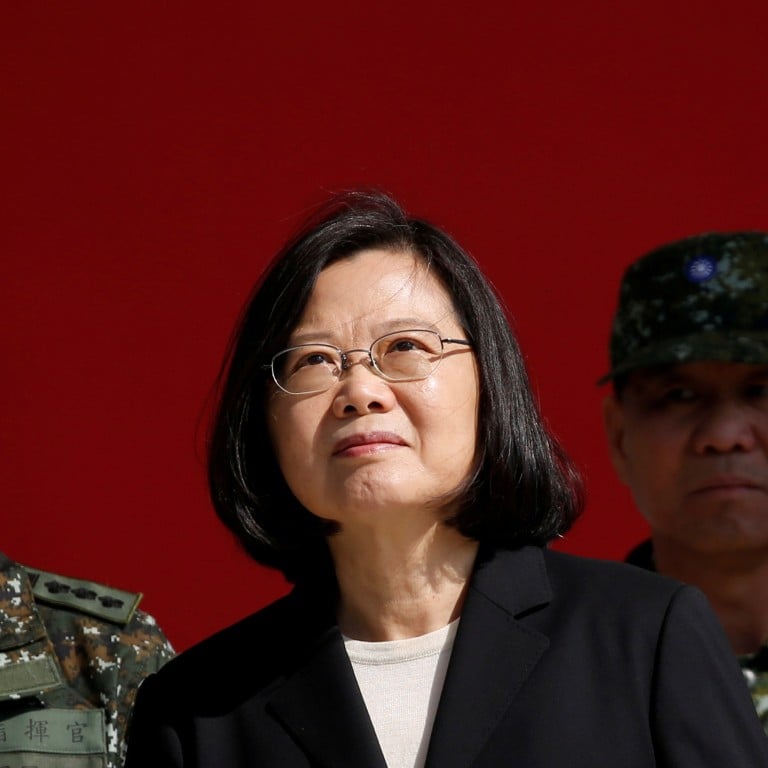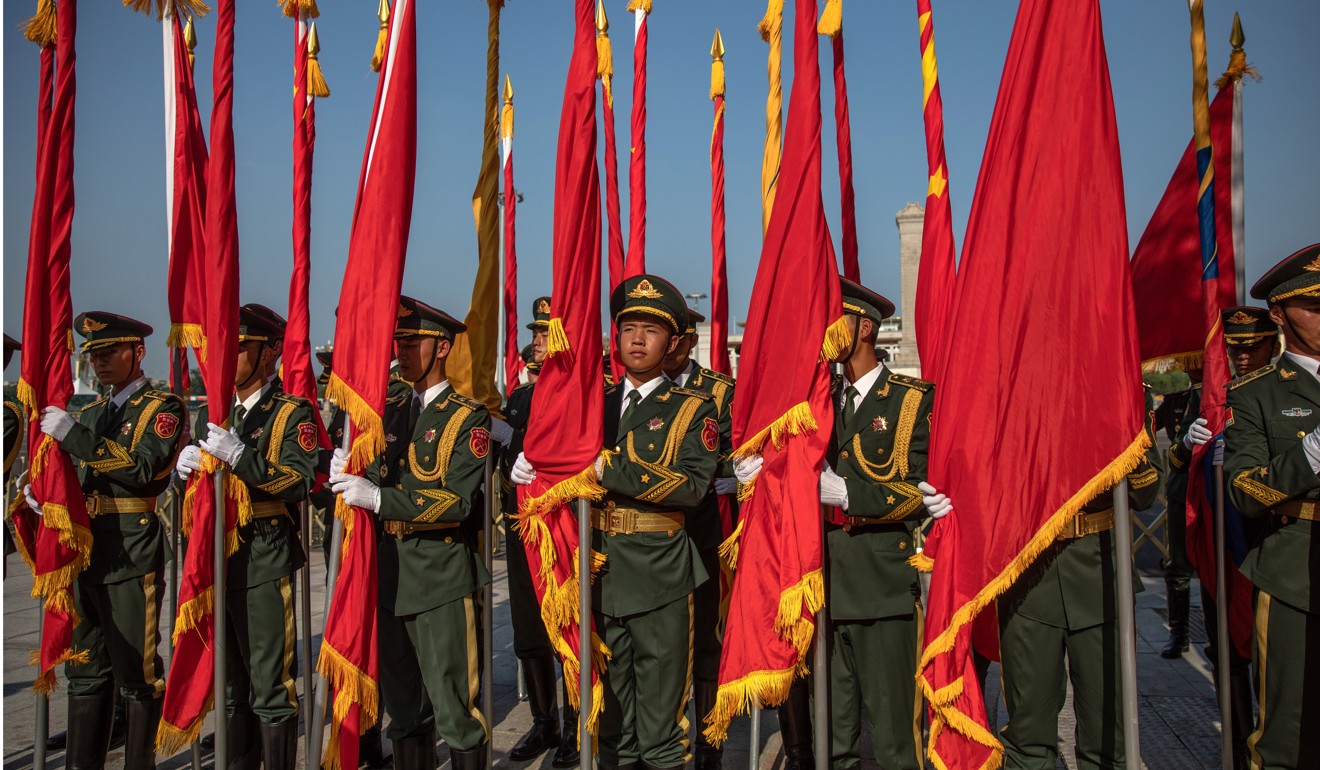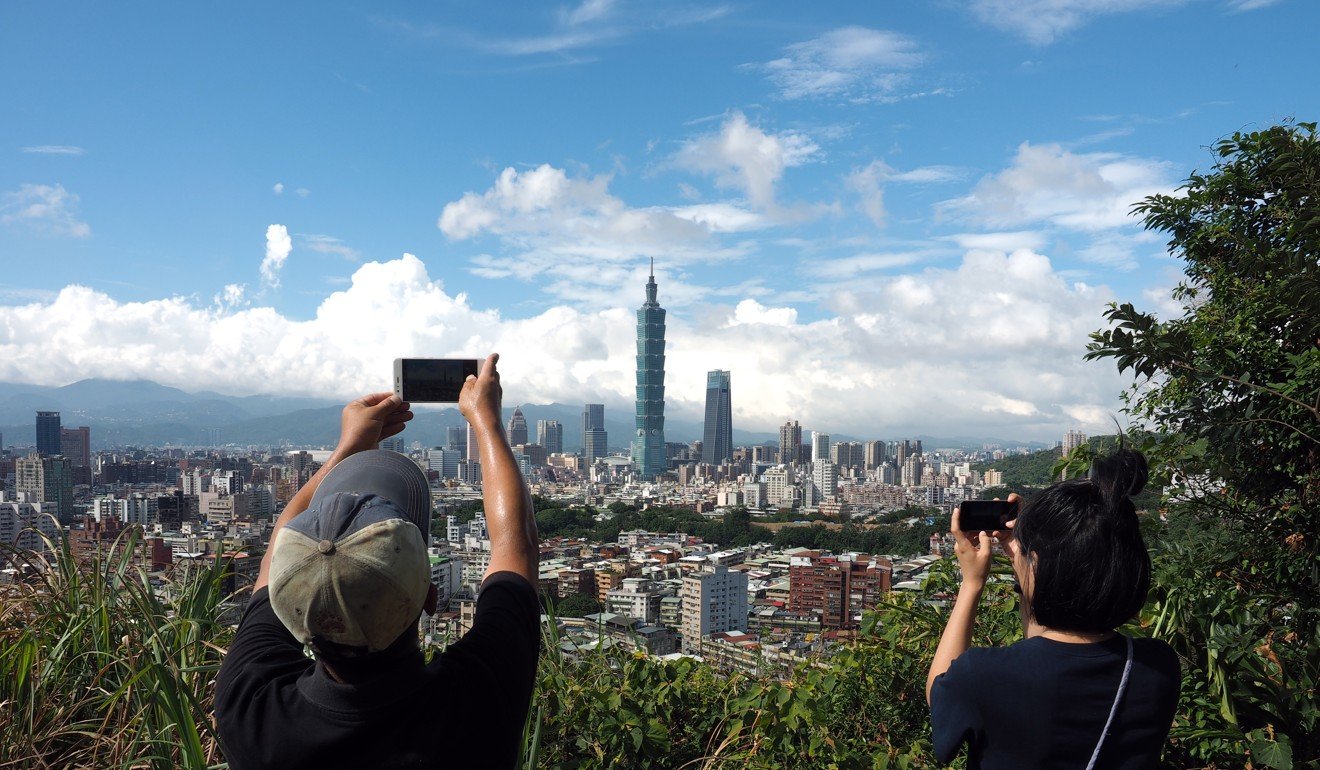
Explainer | Explained: how Taiwan’s Pacific allies are being wooed by mainland China
- A third of Taiwan’s remaining diplomatic allies will meet at the Pacific Islands Forum this week
- While the question of allegiance divides the group, analysts say leaders are more likely to focus on issues that unite them, like climate change
Leaders attending the annual Pacific Islands Forum (PIF) this week will be hosted by Tuvalu – one of just 17 diplomatic allies that Taiwan has around the world.
The Pacific region is home to six of these states: along with Tuvalu, those include Kiribati, Nauru, Palau, the Republic of the Marshall Islands (RMI) and the Solomon Islands.
However, in June the Solomon Islands launched a task force on reconsidering its recognition of Taiwan, which could open the door for others in the region to follow suit.
Despite divisions on recognising Taiwan, analysts believe that the leaders gathered in Tuvalu this week are more likely to focus on issues which unite them, such as the pressing threat of climate change.

Observers say that Australia’s reluctance to take a more proactive stance on fighting climate change could open the door for China to gain more influence in the region — though Beijing has not won hearts at previous PIF meetings.
China’s delegation abruptly walked out of talks during last year’s forum in Nauru – a move which analysts say upset Nauru’s president and did nothing to endear Beijing to other Pacific leaders.
But with China’s spending in the region outpaced only by Australia, analysts say the gloves are off in the fight to pick off Taiwan’s allies, and a change in Pacific attitudes towards China may be only a matter of time.
They’re calling for moral and political solidarity around what seems to be an existential threat
What’s China’s relationship with the region?
China’s aid to its diplomatic partners in the Pacific has soared in recent years, providing it with “more leverage against traditional regional powers”, Denghua Zhang, a research fellow at Australia National University, said in an article published by Hong Kong University’s Asia Global Institute.
The Lowy Institute in Sydney estimates that since 2006, mainland China has spent nearly US$1.8 billion in the region - about eight times as much as Taiwan’s US$224 million.
Experts say Beijing’s economic engagement in the Pacific is driven both by demand for natural resources and by an interest in curbing Taipei’s influence.
China has demonstrated the benefits of switching allegiance. President Xi Jinping visited Papua New Guinea during the Asia-Pacific Economic Cooperation (Apec) summit in November and proposed US$4 billion in funding for much-needed road construction there.

China’s trade volume with the region in 2017 totalled more than US$8 billion. Recent visits by the leaders of the Marshall Islands, Federated States of Micronesia and Palau – which maintain defence allegiance with the US – to Beijing have been marked by extensive high-level protocol and meetings with China’s top decision makers.
What’s in it for Taiwan’s allies to maintain their support?
Beijing and Taipei have abandoned an unofficial truce over poaching each other’s allies since the election of Taiwan’s Democratic Progressive Party leader Tsai Ing-wen in 2016.
Many of Taiwan’s allies will take some persuading to abandon it, analysts say. Though mainland China spends more than Taiwan in the region, support for Taiwan also comes with approval from the United States.
Tess Newton Cain, a principal at TNC Pacific Consulting, said that Taiwan’s Pacific allies want to be assured they can get the infrastructure investment they need without changing their allegiance. To that end, American, Australian and Japanese delegations have increased their interest in helping Pacific states meet these goals.

As the Solomon Islands is the largest and most influential Pacific nation to recognise Taiwan, it would be a serious blow if it changes its mind, analysts say.
China is already the Solomon Islands’ largest trading partner, receiving 65 per cent of its exports.
Solomon Islands Prime Minister Manasseh Sogavare’s task force on reconsidering recognition of Taiwan will visit Fiji, Papua New Guinea, Samoa, Tonga and Vanuatu – all of which have formal ties with China. Sogavare was previously removed from office over charges that he accepted bribes to award a contract to Chinese tech giant Huawei for a fibre-optic cable from Sydney to the Solomons.
Young Asia Pacific climate activists on fighting for change
There’s no upside for the issue of diplomatic recognition to come up at the PIF this week, said Jonathan Pryke, director of the Pacific Islands programme at the Lowy Institute.
“The PIF operates on consensus, and this issue divides the Pacific right down the middle.”
What other issues will be the focus at the Pacific Islands Forum this week?
The assembled leaders will discuss the cause of West Papua, a province in western Indonesia seeking sovereignty. Vanuatu has long championed the cause of West Papua and analysts suggest that changes in leadership in Fiji and Papua New Guinea may bring more support to the cause than before.
West Papuan independence leader Benny Wenda is expected to attend, but has not yet arrived in Tuvalu as part of Vanuatu’s delegation.
Climate change will be the group’s biggest focus.
“They're not calling for more money on this issue,” said Newton Cain. “They’re calling for moral and political solidarity around what seems to be an existential threat.”
Explainer: How climate change will affect Asia
Canberra’s lack of action on climate change makes it harder for increased attention to the region from “big brother” Australia to seem genuine, said Pryke. Prime Minister Scott Morrison’s attendance shows his commitment to the forum, despite having little capacity to change Australia’s climate policy position, Pryke added.
But for leaders in Tuvalu, that will hardly be enough.
“If our friend Australia does not show them any regard, we cannot be partner with that thinking,” said Tuvalu Prime Minister Enele Sopoaga to The Guardian on Sunday.
“I certainly hope we do not come to that juncture to say we cannot go on talking about partnerships … while you keep pouring your coal emissions into the atmosphere that is killing my people and drowning my people into the water.”

